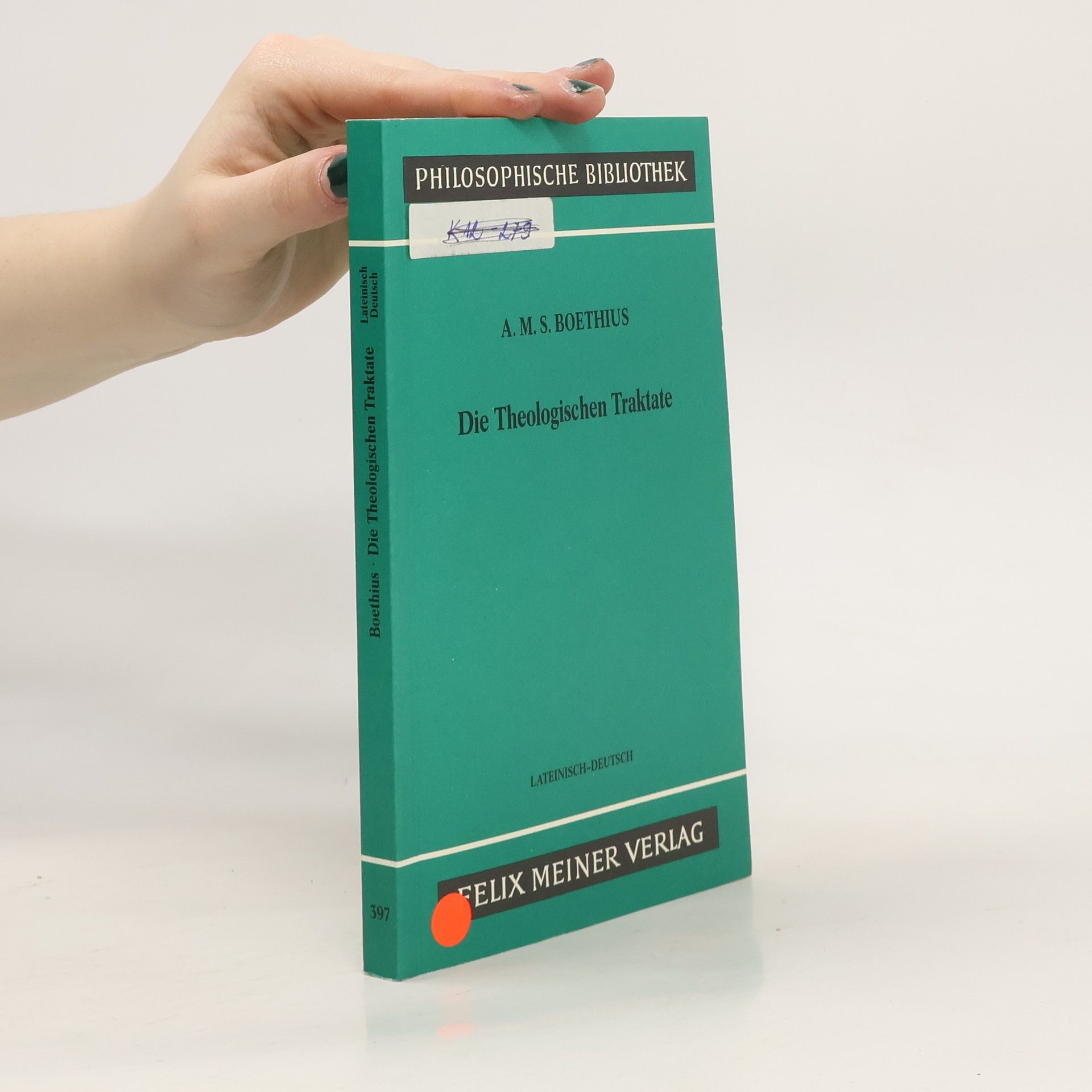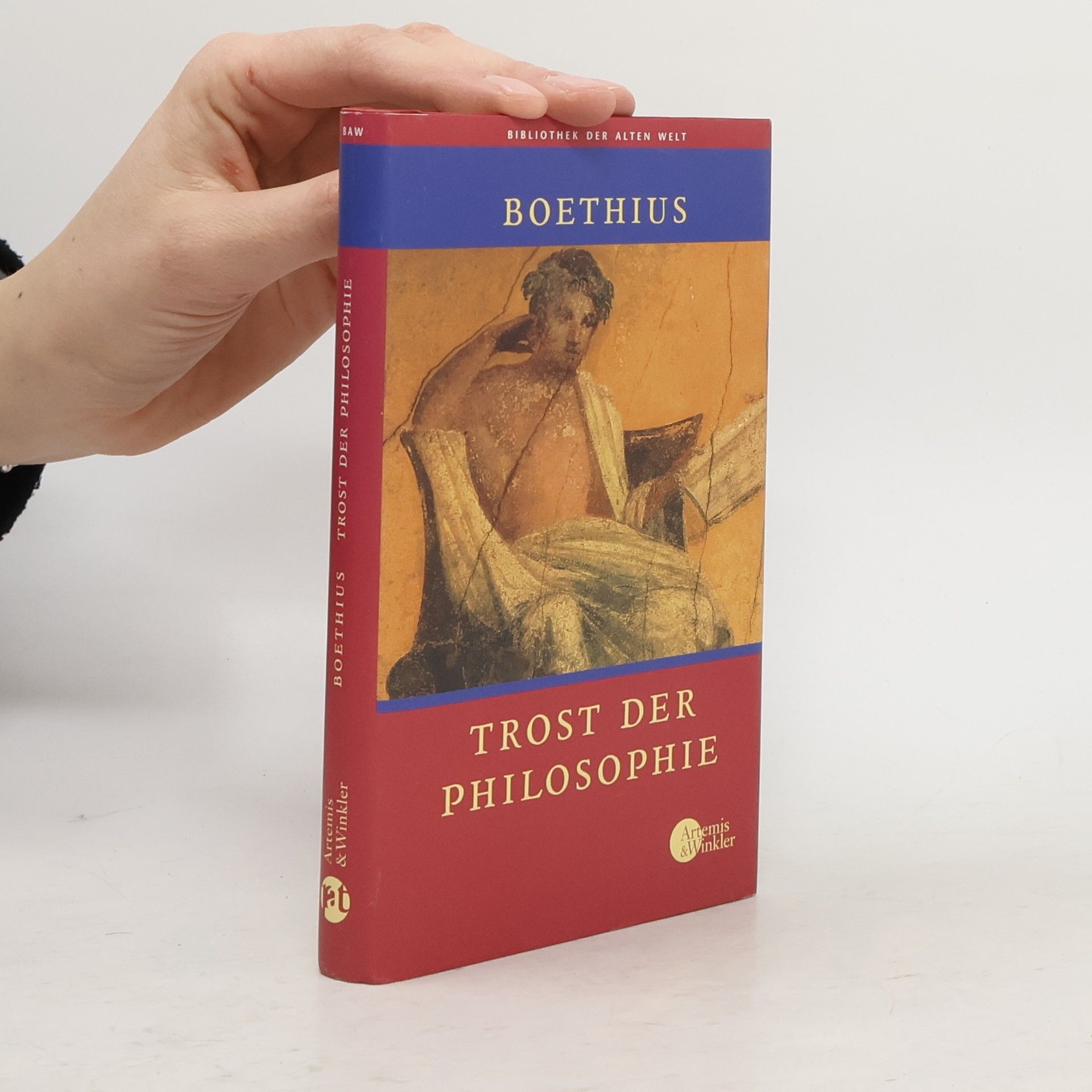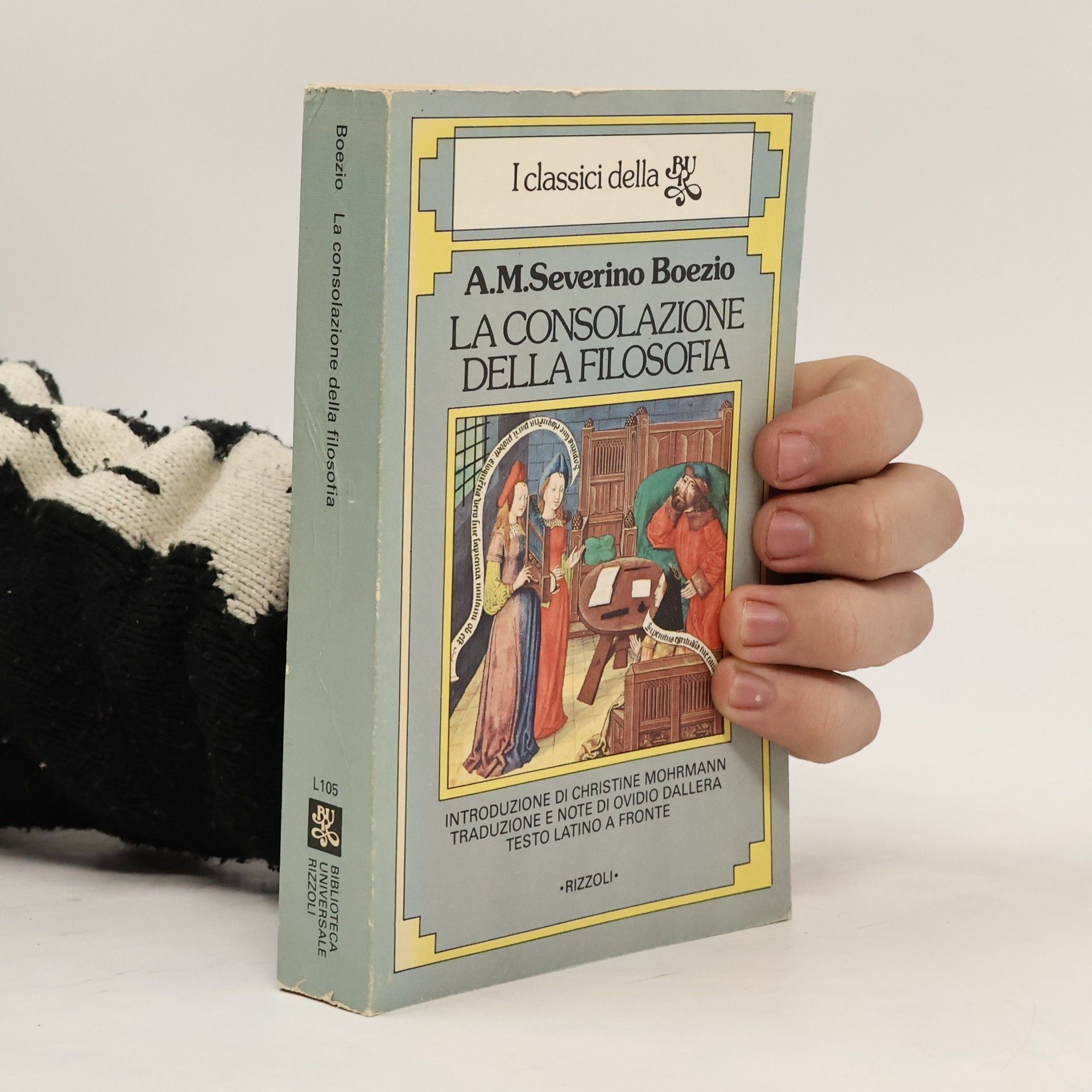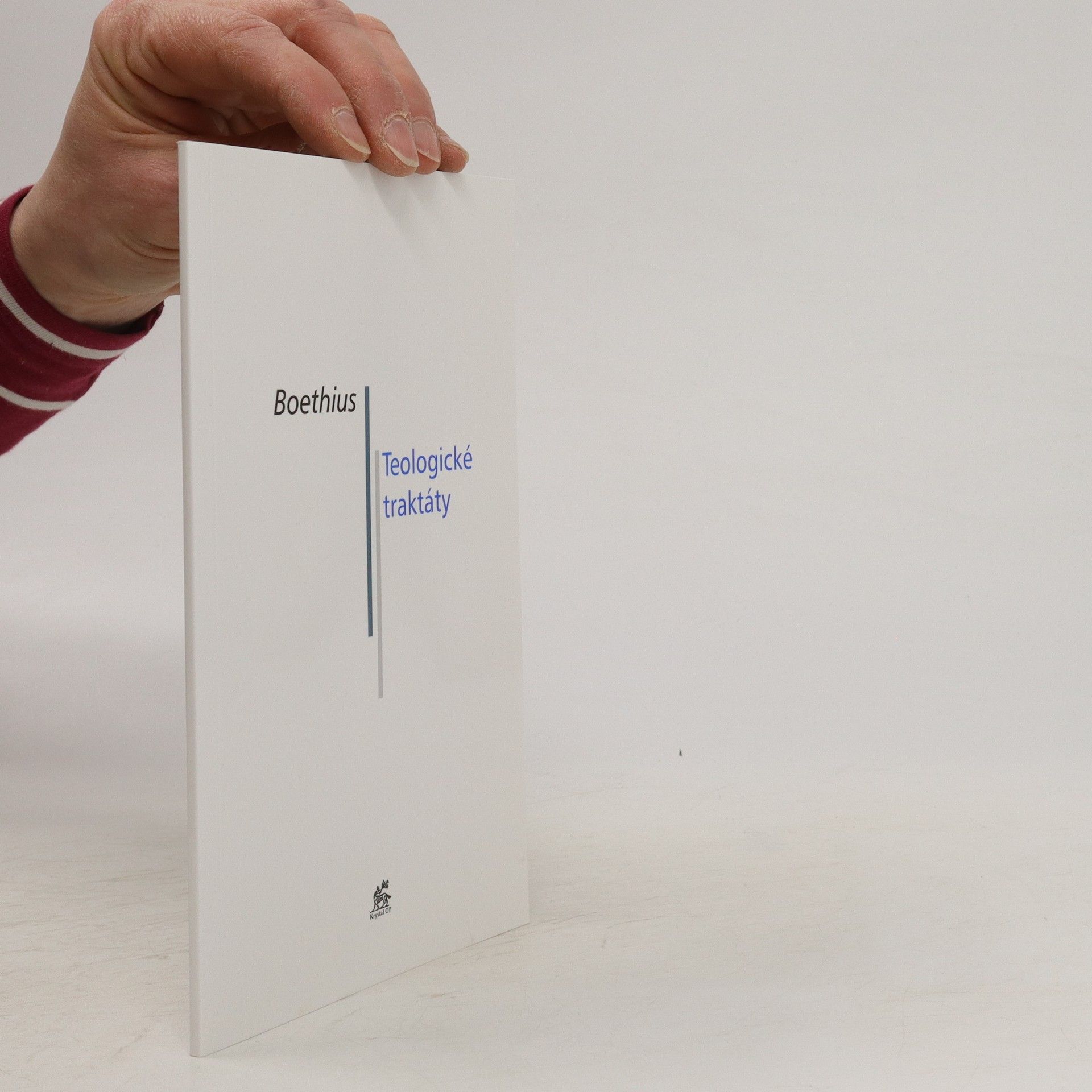Unjustly imprisoned and waiting to die, Boethius penned his last and greatest work, Consolation of Philosophy, an imaginary dialogue between himself and Philosophy, personified as a woman. Reminiscent of Dante in places, Boethius's fiction is an ode-to-philosophy-cum-Socratic-dialogue. Joel Relihan's skillful rendering, smoother to the modern ear than previous translations, preserves the book's heart-rending clarity and Boethius's knack for getting it just right. Listen to him on fortune: "We spin in an ever-turning circle, and it is our delight to change the bottom for the top and the top for the bottom. You may climb up if you wish, but on this condition: Don't think it an injustice when the rules of the game require you to go back down."Consolation of Philosophy recalls the transience of the material world, the eternality of wisdom, and the life of the philosopher. Boethius was deeply influenced by the Platonist tradition, and this piece is one of the more powerful and artful defenses of a detachment that feels almost Buddhist. For anyone who's felt at odds with the world, Consolation is a reminder that the best things in life are eternal. Boethius must be right: the book is just as meaningful today as it was in the sixth century when he wrote it. --Eric de Place
Anicius Manlius Severinus Boëthius Books




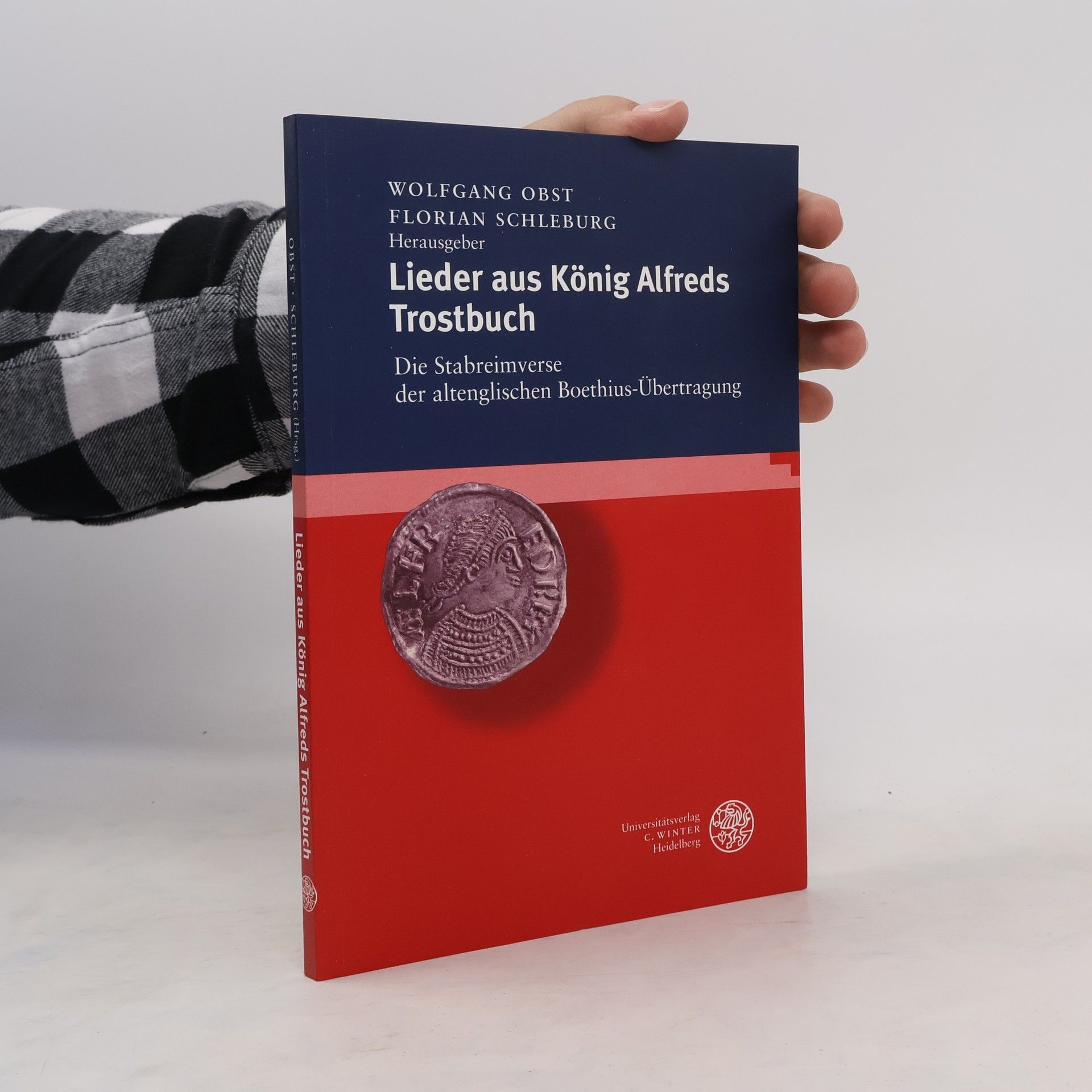
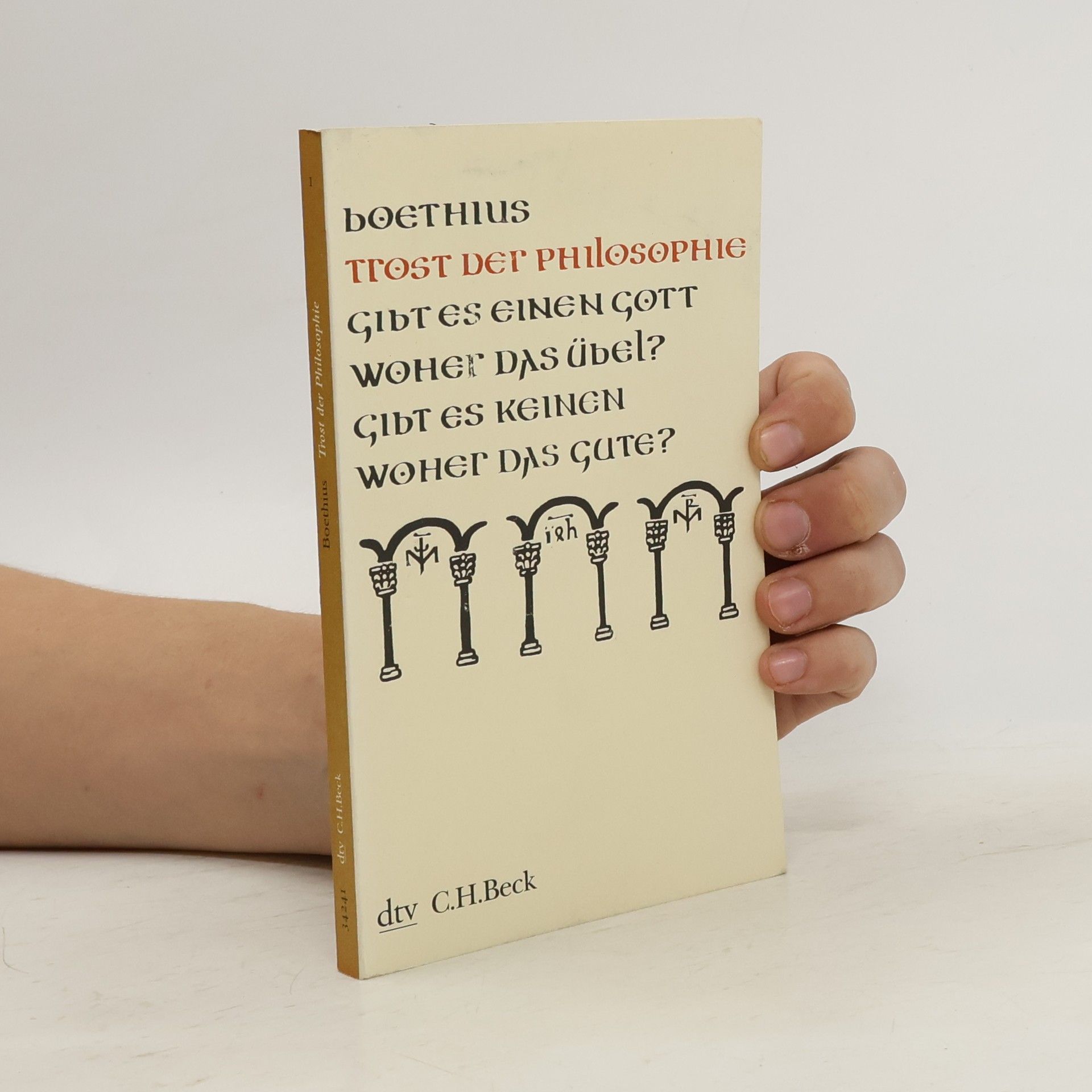

»Gibt es einen Gott woher das Übel? Gibt es keinen woher das Gute?« Die Szene prägt sich ein: Boethius sitzt im Gefängnis, Folter und Hinrichtung stehen ihm bevor. Er weiß sich unschuldig und beklagt sein ungerechtes Schicksal. Er versteht den Lauf der Welt nicht mehr und verfällt einer depressiven Lethargie. Da erscheint eine Frau, die Philosophie, und weist ihn zurecht. Der »Trost der Philosophie« gehört zu den berühmtesten Texten der spätantiken Literatur. Zum Tode verurteilt, empfängt Boethius im Kerker den Besuch der Philosophie. Im Gespräch mit ihr beschwört er noch einmal die große Denktradition der antiken Philosophie als Trostspenderin des Menschen, ehe sie der christlichen Welterklärung weichen muss. Mit einem Nachwort von Kurt Flasch.
Lieder aus König Alfreds Trostbuch
- 135 pages
- 5 hours of reading
Boëthius, der bedeutendste spätantike Gelehrte, verfasste um 500 n. Chr. die »Arithmetik«, ein einflussreiches Standardwerk der Mathematik. In der »Edition Antike« wird es erstmals zweisprachig und mit Abbildungen aus dem Bamberger Codex präsentiert, wodurch antike Zahlenkunde für heutige Leser zugänglich wird.
»Trost der Philosophie« von Boethius ist ein bedeutendes philosophisches Werk der Antike, verfasst im 6. Jahrhundert. In Form eines Dialogs zwischen dem Autor und der personifizierten Philosophie bietet es Trost und Weisheit. Es verbindet neuplatonische und stoische Gedanken und war im Mittelalter äußerst einflussreich.
Die theologischen Traktate
Zweisprachige Ausgabe
Die vollständig in deutscher Übersetzung vorliegenden theologischen Traktate von Boethius bieten einen tiefen Einblick in die Verbindung von neuplatonischer Philosophie und christlicher Dogmatik. Sie sind bislang vor allem Kennern antiker und mittelalterlicher Gedanken bekannt.
Bibliothek der Alten Welt: Trost der Philosophie
- 211 pages
- 8 hours of reading
Trost in der Todeszelle Von Theoderich zunächst gefördert, dann wegen Hochverrats zum Tode verurteilt, verfasste Boethius seine Schrift im Gefängnis vor seiner Hinrichtung im Jahr 524 n. Chr. Hier erscheint ihm eine Frau mit 'höchst ehrwürdigem Antlitz, mit funkelnden Augen, von frischer Farbe und unerschöpflicher Jugendkraft, obwohl sie in keiner Weise unserem Zeitalter anzugehören schien'. Trost findet Boethius in seinen dunkelsten Stunden also nicht im Christentum, sondern in den Gesprächen mit der personifizierten Philosophie.
Teologické traktáty
- 46 pages
- 2 hours of reading
